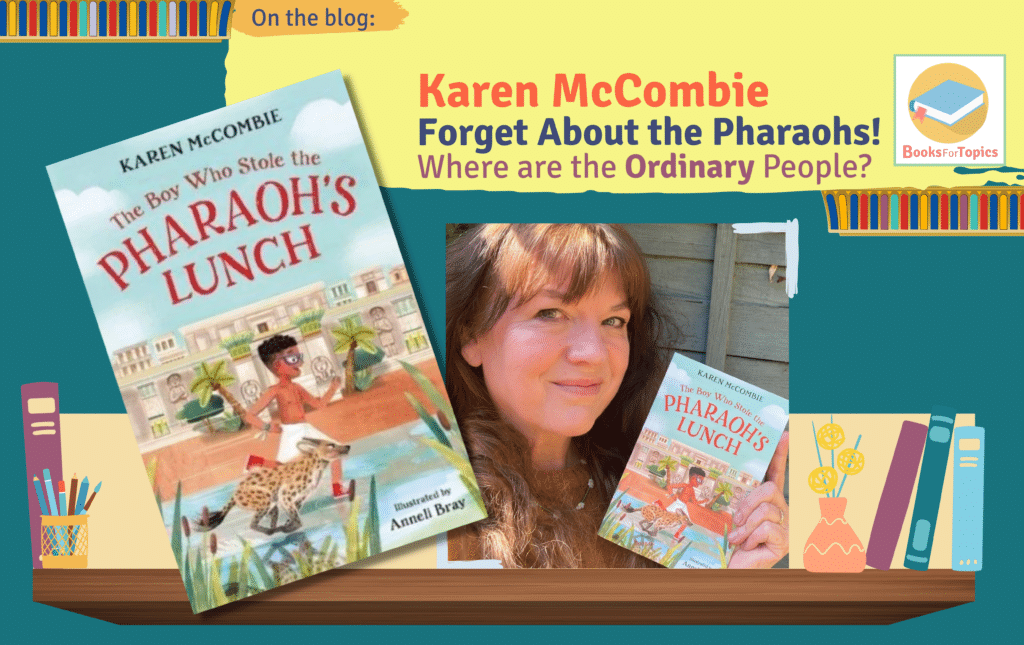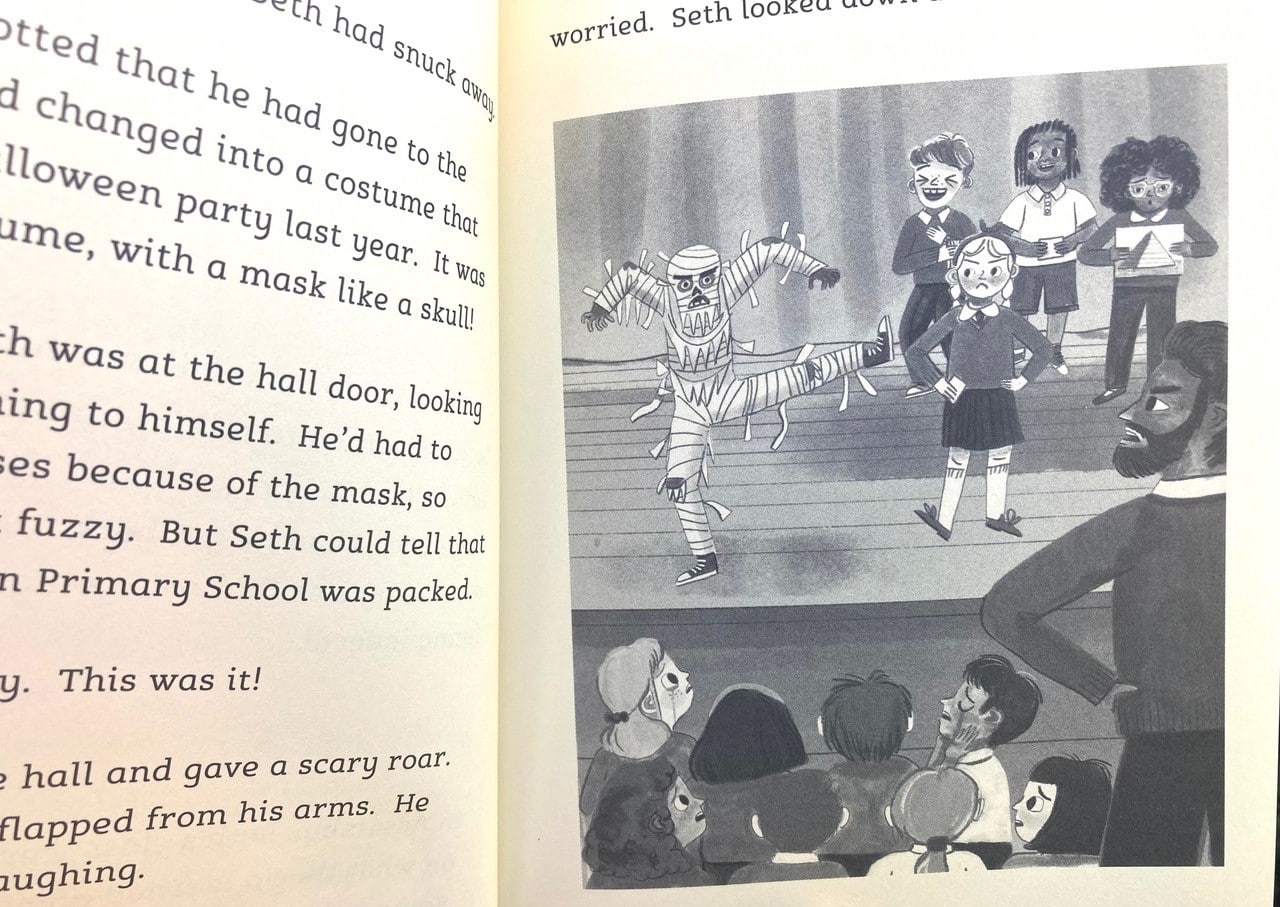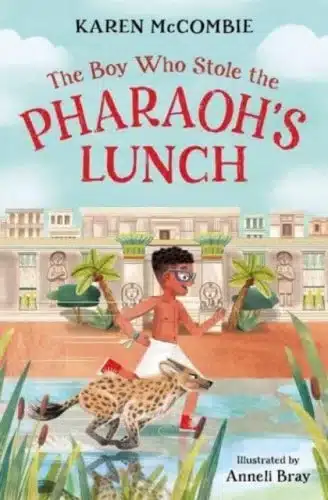Guest Post: Karen McCombie
Author of The Boy Who Stole The Pharaoh’s Lunch
 Forget the Pharaohs!
Forget the Pharaohs!
‘Forget the Pharaohs’? When I’ve written a book with ‘Pharaoh’ in the title?!?
I can explain. But let’s swirl back in time, not to the era of the pyramids, but to 2011, when my kiddo was in Year 3. Thanks to a brilliant teacher who brought the subject vividly to life, Eddy had the best time ever with the Ancient Egypt topic, never shutting up about kings and magical curses, mummies and treasure-filled tombs! It was great to hear Eddy’s obvious enthusiasm for Tutankhamun and his ilk. But as always with history, I found myself thinking, “Yes, but what about the ordinary people?”. And fast forward to last year, when I sat down to write this time-slip novel, about a community of village children and their families who live, work and play by the banks of the Nile, the Pharaoh’s palace shimmering in the distance. Modern-day schoolboy Seth comes tumbling into their world, dragging himself out of the crocodile-infested river and coming face-to-face with a hyena.
A Never-Seen Pharaoh
So who is the, ahem, never-seen Pharaoh of the title, and why he is so significant?
That would be Akhenaten, father of Tutankhamun. As part of the topic, students inevitably learn about the many, many gods of Ancient Egypt, such as Anubis, Osiris, Horus and Ra. But during my research, I discovered something I didn’t know; during his reign, Akhenaten was a rebel and upsetter – the Henry VIII of his time, trying to change the course of history by changing the law. In Akhenaten’s case, that meant banning all mentions of gods, apart from the one ‘true’ god, Aten. (Spoiler: once Akhenaten died, all the gods were back, back, back, by popular demand!)
Inspiration From Teacher Twitter
A teacher from Twitter inspired a scene in the book.
I scrolled through a fun Twitter thread a couple of years ago, where teachers confessed to their biggest disasters from NQT days. One recalled dressing as a mummy and lying perfectly still during an assembly on Ancient Egypt. At one point he leapt up, assuming his ruse would be seen by all as completely hilarious. He didn’t bank on the trauma and tears from a sizable portion of his audience! The memory of that story popped into my mind when I was writing about class clown Seth. Thank you, anonymous teacher, for that brilliant nugget!
A Special Finishing Touch
Actually, there’s one more notable point about ‘The Boy Who Stole The Pharaoh’s Lunch’…
The book is part of the wide range available from multi award-winning publisher Barrington Stoke, whose whole ethos is to produce books that appeal to all readers, while being short and language-edited specifically for reluctant and struggling readers. In particular, Barrington Stoke texts – and the paper they’re printed on – are dyslexia-friendly. That said, their books have never featured a dyslexic child; till now! Who knew? Not me, till my editor pointed it out! My main character Seth is always up to mischief, but it’s only at the end of the book – returned to the present day – that Seth’s teacher begins to suspect that Seth has specific issues with his reading and writing. I feel very honoured indeed to have (accidentally) come up with the first dyslexic character for Barrington Stoke.
Karen’s brand new book The Boy Who Stole The Pharaoh’s Lunch is out now.
We also have more children’s books about history on our booklists, for further ideas for historical stories.
Where next?
> Visit our Reading for Pleasure Hub
> Browse our Topic Booklists
> View our printable year group booklists.
> See our Books of the Month.












